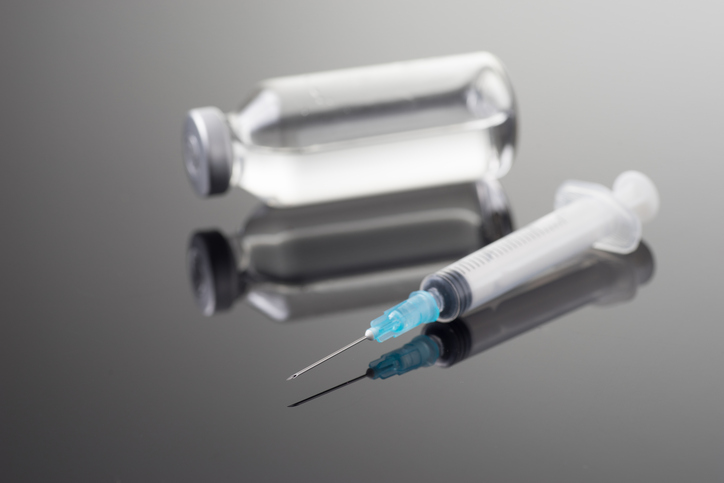
The FDA has authorized Johnson & Johnson’s Covid-19 vaccine for emergency use, adding a third vaccination option—one that comes with storage and distribution advantages.
The regulatory decision followed the review of an FDA advisory panel, which voted unanimously on Friday to recommend authorization of the vaccine. J&J said it has begun shipping its vaccines to the federal government, which will manage distribution. The company expects to deliver enough vials for the vaccination of more than 20 million people in the U.S. by the end of March, ramping up to 100 million vaccinations by mid-year.
The J&J shot joins the messenger RNA vaccines developed by Moderna and partners Pfizer and BioNTech as the only authorized Covid vaccines in the U.S. The mRNA vaccines must be transported and stored at ultra-cold temperatures well below temperatures of typical medical freezer equipment. However, vaccination sites now have a little more flexibility in how they can store mRNA vaccines. Last week, the FDA approved a request from Pfizer and BioNTech to permit storage of their vaccine at pharmaceutical-grade freezers for up to two weeks.
The J&J vaccine can be transported and stored at refrigerator temperatures, making it a better option for rural areas or vaccination sites that don’t have the specialized freezer equipment required to store the mRNA vaccines. It has the additional advantage of being a single shot, unlike the mRNA vaccines that are given as two doses weeks apart. A single shot avoids the challenges of getting people to return for a second injection.
“The potential to significantly reduce the burden of severe disease, by providing an effective and well-tolerated vaccine with just one immunization, is a critical component of the global public health response,” Paul Stoffels, J&J’s chief scientific officer, said in a prepared statement. “A one-shot vaccine is considered by the World Health Organization to be the best option in pandemic settings, enhancing access, distribution and compliance.
The J&J vaccine uses a virus to fight a virus. The company’s Janssen subsidiary takes adenovirus, which causes the common cold, and engineers it so that it cannot replicate and does not cause illness. This engineered virus becomes the vehicle that transports into cells a piece of DNA from SARS-CoV-2, the novel coronavirus. Cells use that genetic material to make the spike protein found on the surface of SARS-CoV-2. Those proteins spark the immune response that leads to immunity. This vaccine technology, which J&J calls AdVac, is the basis of the company’s Ebola vaccine, which was approved by the FDA in 2019.

A Deep-dive Into Specialty Pharma
A specialty drug is a class of prescription medications used to treat complex, chronic or rare medical conditions. Although this classification was originally intended to define the treatment of rare, also termed “orphan” diseases, affecting fewer than 200,000 people in the US, more recently, specialty drugs have emerged as the cornerstone of treatment for chronic and complex diseases such as cancer, autoimmune conditions, diabetes, hepatitis C, and HIV/AIDS.
The FDA authorization for J&J’s Covid vaccine was based on results from a global, placebo-controlled Phase 3 study that enrolled nearly 44,000 volunteers. Those participants were followed for a median of eight weeks. The main goal of the study was to evaluate the first occurrence of moderate-to-severe Covid infection with the onset of symptoms after 14 days, and then after the 28-day mark.
Overall, the J&J vaccine was about 67% effective in preventing moderate-to-severe or critical Covid infection after two weeks. After 28 days, the vaccine was about 66% effective at preventing infection. The FDA added that the J&J vaccine was about 77% effective in preventing severe or critical illness two weeks after vaccination. After 28 days, the vaccine was 85% effective in preventing severe or critical illness.
The most common side effects reported from the studies were pain at the injection site, headaches, fatigue, muscle aches, and nausea. The FDA said these side effects were mostly mild to moderate and lasted for a day or two. J&J does not yet have enough data to determine how long protection from the vaccine lasts. The studies conducted to date also do not show whether the vaccine stops people from transmitting the virus. As part of the emergency authorization, J&J must continue to collect data about its vaccine and report and serious adverse events.
The J&J vaccine is given as a 0.5 mL intramuscular injection. The vaccine is shipped in vials, each containing five doses. The company estimates the vaccine will remain stable for two years stored at minus 4 degrees Fahrenheit (minus 20 degrees Celsius). At refrigerator temperatures in the range of 36 to 46 degrees Fahrenheit (2 to 8 degrees Celsius), the company says the vaccine can be stored for up to three months. The company will deliver the vaccine with the same cold chain currently used to ship its other medicines.
The federal government will manage the allocation and distribution of the J&J vaccine according to guidelines set by the Center for Disease Control and Prevention’s Advisory Committee on Immunization Practices. Johnson & Johnson said that it plans file an application seeking a formal FDA approval later this year. The company is also seeking authorizations for its vaccine in other markets.
Photo: Esben_H, Getty Images












